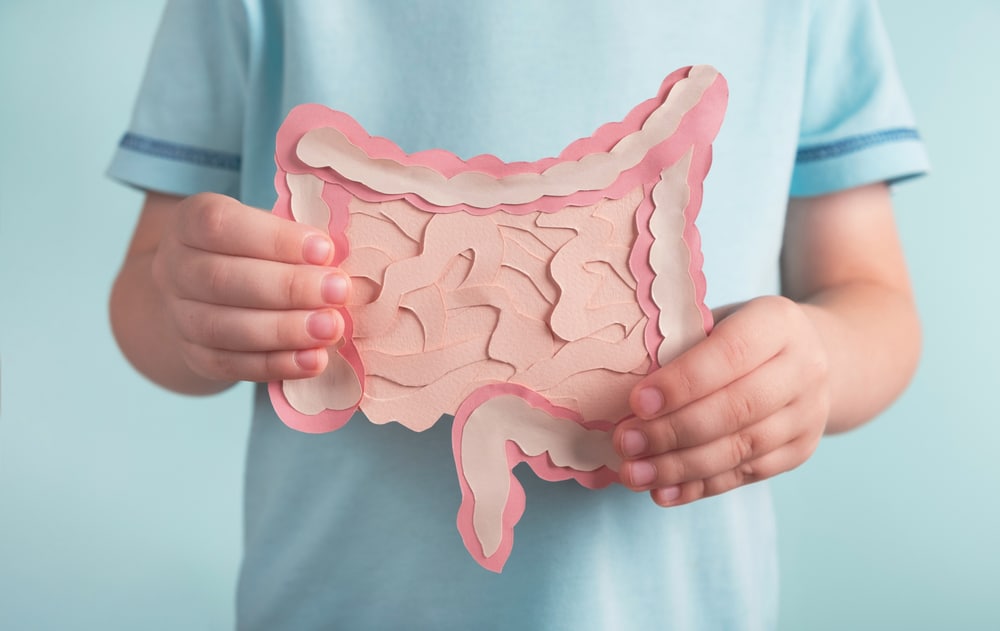
Gut health plays a pivotal role in children’s overall well-being, influencing everything from physical development to immune function. At MINT Nutrition, we believe that a healthy gastrointestinal system is the foundation for a thriving, energetic life. Our expertise in nutrition and wellness guides our approach to enhancing gut health through personalized strategies.
Located in Mooresville, NC, MINT Nutrition is more than a healthcare provider; we are partners in your child’s health journey. Our gastrointestinal health services and nutrition coaching are designed to address the unique needs of each child, promoting long-term well-being. Our founder, Christiane Matey, combines her culinary expertise with a deep understanding of integrative nutrition to create a nurturing environment for health and growth.
The gut-brain connection highlights the impact of gut health on mood and behavior in children. A balanced gut microbiome can positively influence neurological development and emotional well-being. This connection, often described as the “second brain,” is why focusing on healthy gut flora is important for optimal mental and emotional health in children.
Gut health is a factor in children’s overall physical wellness. A healthy gut aids in effective digestion, nutrient absorption, and immune system function, preventing illnesses and supporting growth. Balanced gut health can help children maintain energy levels and resilience against common health issues.
A healthy gut comprises a diverse microbiome, an intact gut lining, and regular digestive function. Encouraging a fiber-rich diet, probiotics, and whole foods supports this balance. Additionally, managing stress and getting adequate sleep are essential for maintaining a healthy gastrointestinal system in children.
Processed foods, high in sugar and fat, can disrupt the balance of gut bacteria, while a diet rich in fiber from fruits, vegetables, and whole grains promotes a healthy gut microbiome. Regular consumption of these nutrient-rich foods supports digestive health and aids in the prevention of digestive disorders.
While antibiotics are necessary for treating certain infections, their overuse or misuse can negatively impact gut health. It’s important to use antibiotics judiciously and under medical guidance. During and after antibiotic use, incorporating probiotics for gut health can help replenish beneficial bacteria in the gut, aiding in restoring a healthy gut environment.
Balanced hygiene practices are essential for gut health. While good hygiene prevents harmful infections, excessive sanitization might limit exposure to beneficial microbes, potentially impacting immune development. Striking a balance is vital for supporting a robust immune system and preventing digestive disorders. Encouraging exposure to diverse environments and avoiding the overuse of antibacterial products can foster a healthy microbiome in children.
Children experiencing symptoms of gastrointestinal disorders may exhibit various signs, such as abdominal pain, irregular bowel movements (such as constipation or diarrhea), unexplained weight loss, or poor growth. Additionally, symptoms might manifest as nausea, vomiting, or unusual fatigue, indicating a need for medical evaluation to ensure proper diagnosis and management.
Probiotics are live bacteria beneficial for gut health, particularly in maintaining a balanced gut microbiome. Including probiotics for gut health in a child’s diet, such as yogurt, kefir, or specially formulated supplements, can enhance digestive function and strengthen the immune system. Regular intake of probiotics helps establish a robust gut flora, which helps fight off pathogens and aid in the digestion and absorption of nutrients.
Prebiotics, the dietary fibers that feed good gut bacteria, are vital for maintaining digestive health. Foods like bananas, onions, garlic, and whole grains are rich in prebiotics and contribute to a flourishing gut environment. Consuming these prebiotic-rich foods encourages the growth of beneficial bacteria, thereby improving bowel regularity, enhancing nutrient absorption, and bolstering the immune system.
Repeatedly introducing various foods in a low-pressure environment can be effective for children. This approach to enhancing gut health and expanding a child’s palate allows them to gradually get accustomed to new tastes and textures at their own pace.
Actively involving children in preparing meals can increase their interest in food and nutrition. This engagement can lead to a better appreciation of healthy foods and a willingness to try new dishes, contributing to a balanced diet.
Children are often more adventurous with snacks, especially when hungry. Offering nutritious snacks during these times can be a strategic way to introduce healthier food options, thereby improving gastrointestinal health.
Presenting a variety of fruits and vegetables in different colors can enhance digestive health. This strategy makes meals visually attractive and ensures a wide range of nutrients, which are vital for growth and development.
Children tend to mimic adults’ eating habits. Demonstrating a positive attitude and enthusiasm toward healthy eating can significantly influence their choices and positively impact their gut health.
Informing children about the importance of different foods and their role in preventing digestive disorders can empower them to make informed decisions about their diet. It can also help them feel more empowered to make healthy choices for their own bodies with foods that they enjoy.
Gardening with children and growing fruits and vegetables can be a fun and educational activity leading to an expanded palate over time. This experience often increases children’s willingness to try and enjoy the foods they have grown and nurtured.
At MINT Nutrition in Mooresville, NC, we focus on guiding families on how to improve gut health for their children. Understanding the significance of a balanced diet and healthy lifestyle choices promotes long-term gastrointestinal wellness. If you’re seeking advice on gut health for your child, we invite you to schedule a complimentary 15-minute consultation call.

Integrative Nutritionist & Dietitian